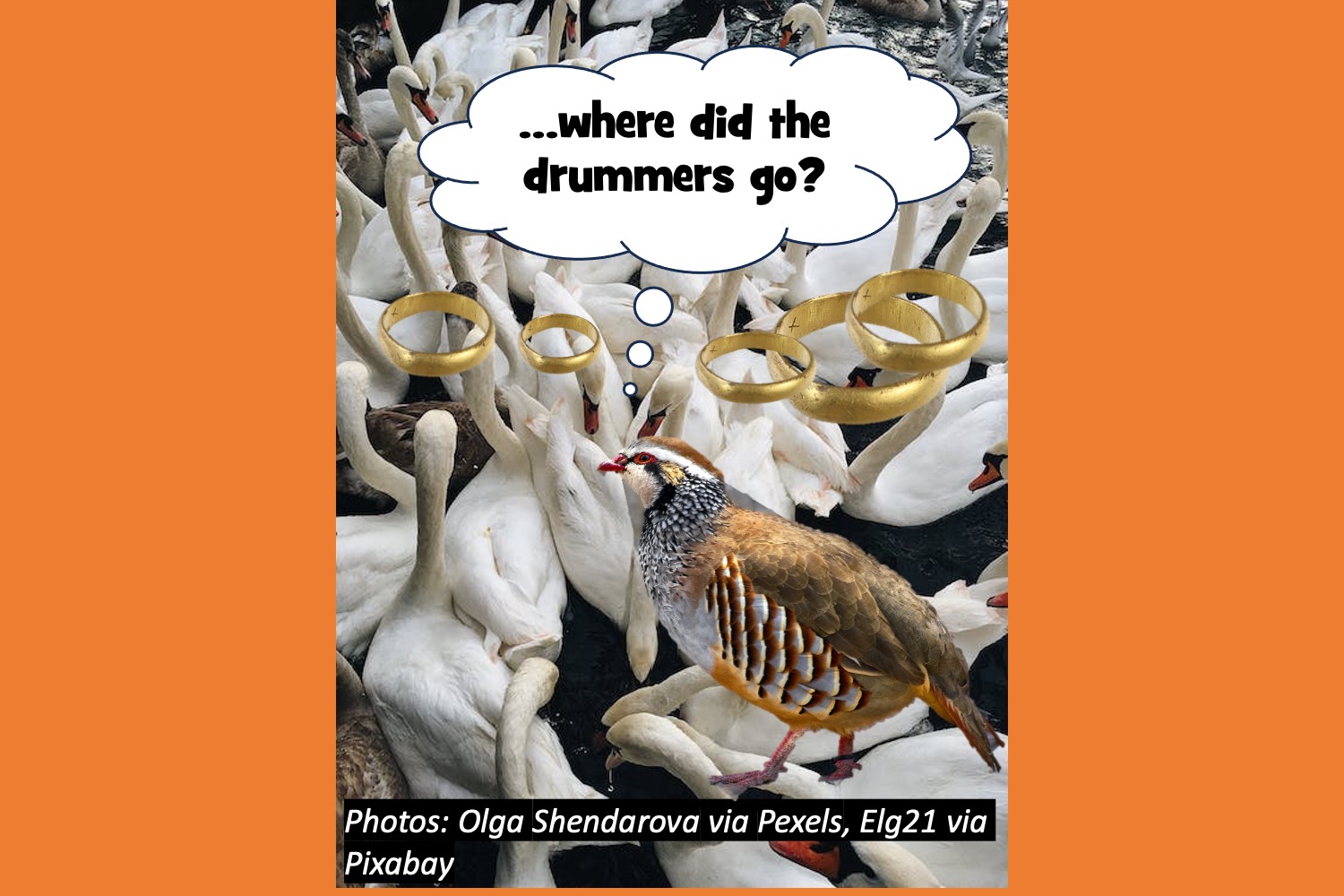(Note: As we do on special holidays, we’re providing an extra math problem about Christmas, for those who celebrate or would like to learn more about it. Enjoy!)
 Christmas is a very special day for Christians, as it’s the birthday of baby Jesus. But Christmas starts a whole 12 days of celebration ending with the Epiphany, the day the Wise Men brought gifts to their newborn King. So of course someone wrote a song about it, “The Twelve Days of Christmas.” Many of the gifts are either birds — geese a-laying, swans a-swimming, or that partridge in a pear tree… and those gifts add up FAST. Remember, on the first day of Christmas you get a partridge, then on the 2nd day you get 2 turtle doves AND a partridge, then on the 3rd day 3 French hens AND 2 more turtle doves AND another partridge…we hope you also got some birdcages for Christmas!
Christmas is a very special day for Christians, as it’s the birthday of baby Jesus. But Christmas starts a whole 12 days of celebration ending with the Epiphany, the day the Wise Men brought gifts to their newborn King. So of course someone wrote a song about it, “The Twelve Days of Christmas.” Many of the gifts are either birds — geese a-laying, swans a-swimming, or that partridge in a pear tree… and those gifts add up FAST. Remember, on the first day of Christmas you get a partridge, then on the 2nd day you get 2 turtle doves AND a partridge, then on the 3rd day 3 French hens AND 2 more turtle doves AND another partridge…we hope you also got some birdcages for Christmas!
Wee ones: On the 2nd day of Christmas you get 2 turtle doves and a partridge in a pear tree. How many birds do you get that day?
Little kids: On the 3rd day of Christmas you get 3 French hens, 2 turtle doves and a partridge in a pear tree. How many birds is that? Bonus: If you wanted to split the birds into 2 equal groups but keep each with its own kind, how would you do that?
Big kids: On day 5 you get 5 golden rings, and you get a whole new set of 5 on each of days 6, 7, 8, 9, 10, 11 and 12. How many rings do you get in total? Bonus: If each ring weighs a whole ounce in gold and gold costs $2,000 per ounce, how much do all those rings cost?
Answers:
Wee ones: 3 birds.
Little kids: 6 birds. Bonus: Put the 3 hens in one group, and the doves and partridge in the other.
Big kids: 40 rings, arriving on a total of 8 days. Bonus: $80,000.

